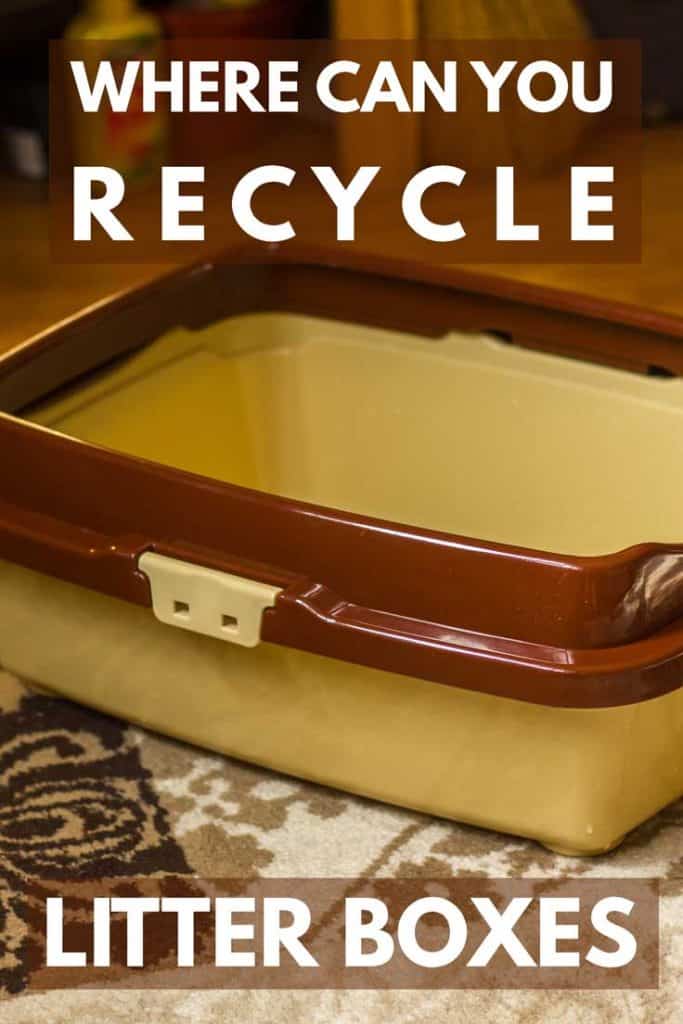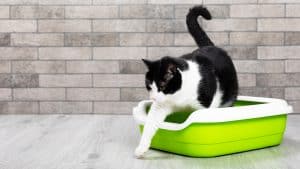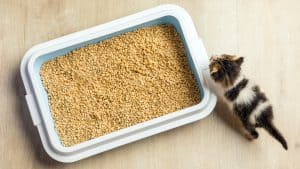If you own a cat, you're likely aware that you should replace your pet's litter box once a year. However, where do old litter boxes go? You may want to be environmentally responsible and recycle them. But where can you recycle litter boxes?
In this article, we're going to guide you on the path toward sustainable pet ownership. We'll start with recycling those old litter boxes.
We've done the research to help you keep that old box out of the landfill and give it a new purpose.
We'll also explore some creative and practical ways to repurpose old litter boxes if recycling options aren't readily available in your area.
So, join us on this green journey - it's all about being a cat lover and an earth lover too!

Making Green Choices: An Eco-Friendly Approach to Cat Care
You might not be aware, but it's a good practice to replace your pet cat's litter box annually. This raises an important question - what should we do with the old ones?
For those conscious of our environmental footprint, recycling seems to be a natural choice. But where can you take these old litter boxes for recycling?
We've done the legwork and dug deep into this issue to help you steer clear from adding to the ever-growing landfills.
In certain localities, recycling centers do accept used litter boxes. But that's not the end of the story.
If these centers aren't accessible, or you're up for a bit of DIY, these old boxes can find a second life right at home. (Meaning you don't have to dispose of them at all.)
As a cat parent, you can express your love for your pet and the planet simultaneously!
Keep reading to find out more about how you can find a place to recycle your cat’s litter box and some ways to reuse them.
Why Recycle Litter Boxes?
Before we jump into the "where" let’s take a moment to understand why it’s important to recycle your cat’s litter box.
It's generally recommended that you replace the litter box once a year. Read our post about how often you should get a new litter box to learn why.
To recap quickly, most litter boxes begin to deteriorate after a year, with scratching marks on the plastic serving as breeding grounds for bacteria.
If all 47.1 million cat owners throw out their cat’s box every year as they should, that’s a lot of litter boxes.
Most litter boxes are plastic, which takes hundreds of years to break down. Therefore, every litter box that’s ever been tossed is still in a landfill somewhere.
For these reasons alone, recycling your litter boxes is a good idea.
We only have one planet. Everybody should be doing their part to limit the negative impact we’re having on the environment.
Recycling your litter box is an easy step you can take to help.
Of course, investing in a good-quality box is a good idea in and of itself. A quality box will last for longer and be able to better withstand Kitty's claws.
Also, making sure you have enough litter in the box is always a good idea.
Most cats prefer not to reach the very bottom of the box as they dig. Thus, enough litter can serve to protect your box and help it last longer.
But regardless of how old the box is when it's time to replace it, recycling it rather than just putting it out in the trash is a good idea. So let's take a closer look at that.
Where to Recycle Litter Boxes
The first place you want to look to recycle your old litter box is your local recycling center.
Not all recycling centers accept used litter boxes. So, you may need to call a few before finding one that does.
To find a recycling center near you, you can search online or check with your city hall. They should have a list of services the city provides, including recycling. They may also have a directory of recycling centers in your local area or across the state.
Before taking your litter boxes to the recycling center, you’ll want to clean them out. This increases the chances that they’ll be accepted. As with food containers, many recycling centers won’t accept items that are dirty.
Other Uses for Old Litter Boxes
If you’re having trouble finding a recycling center to take your used litter boxes to, you may want to give it new life around your home.
There are a few ways you can use old litter boxes so that you don’t need to recycle them. Here are a few of our favorite ways to use old litter boxes:
Idea #1: Starting Seeds
If you love gardening, a great way to save money and get extra use out of your cat’s box is to start seeds in it.
This idea is particularly helpful for deep-rooted plants that don’t do well in small starter cups. Just be sure to clean it out well to avoid any leftover bacteria from infecting your soil.
For drainage, you may want to poke some holes in the bottom. The best way to do this is by heating a nail over a flame and melting holes through the plastic.
Alternatively, if you have a small soldering iron for electronics, this is great for creating holes in the plastic.

Idea #2: Planters
Why not take the idea of starting seeds to the next level? You can use your cat’s old litter box as a planter.
Shallow litter boxes can only handle plants with a shallow root system. However, deeper litter boxes are great for container gardening of all sorts of things.
Once again, you’ll want to clean it thoroughly and add holes for drainage.
If they’re going on your front porch or where you’ll see them often, you can paint them to be more decorative.
Or, build wooden boxes around them and nobody will ever know you’re using litter boxes.
Another option for using even broken litter boxes is for invasive plants, like mint. Carefully remove the bottom and bury the litter box around the plant. This will help prevent it from spreading too far and taking over your entire garden.
Idea #3: Garage Storage
Whether it’s your gardening tools or greasy tools from fixing your car, a litter box can be a way to store things in your garage when you don’t want to waste a nice container on them.
There is one thing to keep in mind if you do this. If cats have access to the garage, keep the used pan well out of their reach.
Otherwise, they might try to use it even with things stored inside!
Idea #4: Car Oil Pans
Another use in the garage for old litter boxes is for collecting used car oil during an oil change.
This used oil can then be easily poured from the litter box into an airtight container to be recycled. Most recycling plants will accept used oil, and some will even pay you for it.
Other Options for Recyclable Litter Pans
Instead of struggling with how to recycle your old plastic litter pan, here are a couple of ways you can more easily recycle your cat’s bathroom spot.
Aluminum Pan
One option for a truly recyclable litter box is to use disposable aluminum pans that are sold for cooking food.
These can be purchased nearly anywhere and are inexpensive, especially if you buy them in bulk. Once your cat is done with one, wash it well and toss it in your regular recycling bin.
If you decide to use an aluminum pan for a cat litter box, remember that they are thin.
Your cat may be able to scratch through it if her claws are long enough and she’s determined enough to destroy it. So, this may not work for everyone.
Disposable Litter Box
You can also use a disposable litter box.
It’s cheaper than most litter boxes and made from recyclable materials, so it’s about as environmentally friendly as it comes.
Click Here To See This Disposable Litter Box On Amazon
Although you have to change them out more often than plastic boxes, the benefits outweigh the drawbacks.
You don’t have to clean them since you simply throw them away when they get too dirty. Also, they break down quickly in landfills so you know you’re helping the environment.
Final Thoughts On Recycling
Recycling your old plastic litter box is as easy as finding a recycling center that will take it.
But you can also give it new life in several ways, or opt for an alternative litter box that can be more easily recycled or disposed of.
Hopefully, you found this post helpful and got some ideas for how you can give your old litter box new life so you’re not contributing to the problem of plastic in landfills more than you need to.
Taking this one step to recycle your litter box can help leave the world a better place for future generations, especially if you’re taking other steps to help the environment as well.



